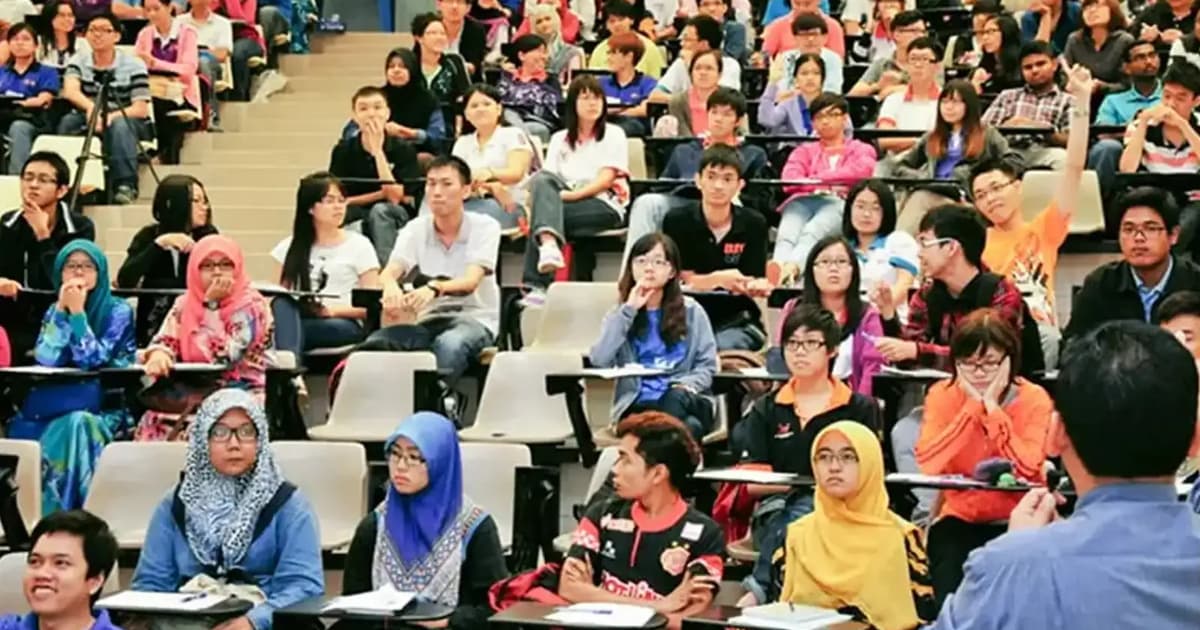
In recent podcasts with young Malaysians, I have often been asked this question.
Many Malaysians find the quota system unfair. They want the Pakatan Harapan government to prioritise its reform to reflect a more just Malaysia.
Now, I am neither for nor against the quota system, and so, in this article, I will do two things.
Firstly, I will argue that there is no political will among any of the three political coalitions to tackle this issue. They would not even touch it with a ten-foot pole.
Changing the quota system to favour more non-Bumiputeras is an act of political harakiri. The coalition’s Malay vote bank will vanish at the next election. Hope for change is futile.
Secondly, I will explain how we can circumvent the quota system to get what we, Malaysians, want ultimately — a just education for all.
Controversy over the quota system resurfaced after an STPM top-scorer, Edward Wong, failed to secure a spot for an accountancy course at a public university.
His plight drew the attention of MCA president Wee Ka Siong who gallantly defended Wong who had lost out to other non-Bumiputera high-achievers.
No one hated Wong, nor did the system victimise him. He was just outranked by so many others more qualified than him.
Taking to social media to vent his frustration may not have been the smartest move, but we can all understand his disappointment.
I wonder though — would he have gotten a detailed explanation from higher education director-generaal Azlinda Azman had he written personally to the university?
I think he is entitled to one. It should be made a norm for civil servants to entertain queries by citizens.
But back to the question of the quota system. Is it a fair system?
Well, here is a big problem. For one group of Malaysians the quota system is unfair and unjust, but to another group it is just and should not be questioned.
I have explained many times in interviews that this quota system is a political decision made by a ruling coalition.
I thought that Wee Ka Siong was part of that coalition and had reluctantly agreed to go along with the powerful Malay leaders in Umno. Yet, Wee is now kicking up a fuss, though it comes off as political theatre.
In my past interviews, I said that there is only one other political coalition that can be asked to change the quota system.
Now, though, it seems that PAS is focussed on being the next government.
So maybe PAS should take a religious oath that it would reform the quota system to make it more favourable and just for the non-Bumiputera community.
But is PAS willing to commit to such reforms?
Will Perikatan Nasional as the government-in-waiting make such a pledge in their manifesto?
I don’t think so because PN relies on the Malay vote — and the Malay middle class, upper middle class as well as the lower middle class will never agree to the quota being changed.
Their votes will shift. That is why the unity government cannot touch the quota system. It risks being punished by the Malay electorate.
Now, let us say that there is a fourth force to rival PH, BN and PN.
How many seats can the Fourth Force win realistically? 20 or 30? Good luck with that!! Let us be generous and say the Fourth Force wins 30 seats and their president becomes the higher education minister in a mixed government.
Will he or she change the quota?
If they try, we can be certain that PAS will organise a rally.
If the Islamic party can mobilise 25,000 people for the Turun Anwar rally, how many rally goers do you think Umno-PAS-Bersatu can muster? I would say easily 70,000 demonstrators — all Malay, and all hostile. That is a realistic scenario.
Now that I have shown that the university quota cannot be changed, what then are the other alternatives?
Private universities are the only solution. I taught at a public university for 27 years and am now in my 10th year in a private university.
I can see that the degree, master’s and PhD programmes offered are all on par.
Many academics and professors who have retired and not been reappointed by public universities have crossed over to private universities.
Not getting UM for your first choice should no longer be something to cry about. Private universities offer the same programmes.
Now of course the question then is how to finance such an expensive endeavour.
Here is where we Malaysians must practice what I call a “parallel Malaysia”.
It is pointless to look for any political party to solve the quota for admission in matriculation or university.
Unless you are a Sarawakian where you will be guaranteed free tertiary education, we need to rely on ourselves.
There are many non-Bumiputera T20s and millionaires who could come together and contribute to tertiary education for the non-Bumiputeras.
Corporate entities can be given a generous tax exemption and allowance for contributing to this aspect.
If there are 100 corporations offering 100 scholarships, we could be off to a good start. If there are 100 millionaires that can offer 1000 places, that too will help.
That is already 11,000 offers of scholarship. Now if the private universities themselves also offer 100 scholarship places we could have another 2000 places making it 13,000.
The unity government can provide tax breaks or other perks to corporations, individuals and private universities for their noble gesture for our nation. In time no one will care about not getting a place at Universiti Malaya anymore. Any university will do.
Why take a mountain head on, when I can just get around it?
Unless the demographic landscape of our nation shifts dramatically, the quota system will remain untouched. But so what? Our diligent sons and daughters can still find their place — and we can rebuild this nation using a parallel path.
The views expressed are those of the writer and do not necessarily reflect those of FMT.






